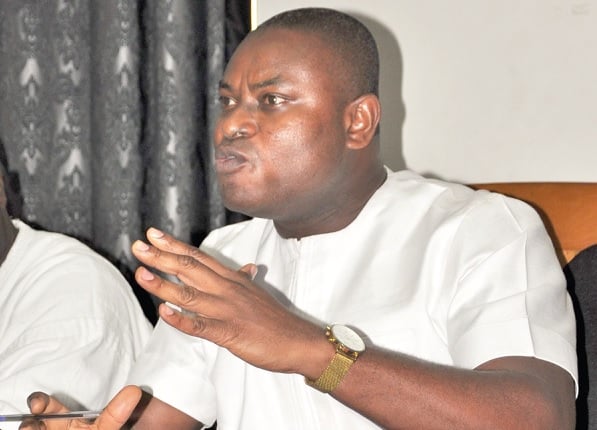The ongoing proceedings to remove Chief Justice Gertrude Esaaba Torkornoo have ignited a fierce debate in Ghana, with the ruling New Patriotic Party (NPP) characterizing the process as a politically motivated maneuver orchestrated by former President John Dramani Mahama and the opposition National Democratic Congress (NDC). Richard Ahiagbah, the NPP’s National Communications Director, contends that the impeachment effort is not grounded in legitimate legal concerns but rather represents a calculated exploitation of constitutional loopholes to advance a partisan agenda. This accusation casts a shadow over the proceedings, raising questions about the integrity of the process and its potential ramifications for the independence of Ghana’s judiciary.
Ahiagbah argues that the law itself is being manipulated to serve political ends. He asserts that the inherent weaknesses within the legal framework are being exploited by the NDC, allowing them to pursue a course of action that threatens the delicate balance of power between the branches of government. He warns that this precedent could have dire consequences for Ghana’s democracy, emphasizing the crucial role of the judiciary as the guardian of the rule of law. By undermining the judiciary, Ahiagbah contends, the entire democratic structure is jeopardized, leaving citizens’ liberties vulnerable to political manipulation.
The NPP’s stance reflects a broader concern about the potential erosion of judicial independence. Ahiagbah advocates for strengthening legal protections for the judiciary, suggesting that it should become virtually untouchable, a “taboo” subject for political maneuvering. He argues that such safeguards are essential to preserve the integrity of the judicial system and ensure that it remains free from political interference. This call for enhanced protection highlights the perceived fragility of judicial independence in the face of political pressure.
The controversy stems from three separate petitions submitted against Chief Justice Torkornoo, leading to the formation of a five-member committee of inquiry by President Nana Akufo-Addo, acting on the advice of the Council of State. The President’s subsequent suspension of the Chief Justice pending the outcome of the inquiry has further fueled the political firestorm. The NPP, along with some other opposition parties, have organized protests and presented petitions to various governmental bodies, denouncing the actions against the Chief Justice as an assault on judicial independence. They view the entire process as a calculated attempt to undermine the judiciary and exert undue political influence.
The #SaveTheJudiciaryDemo organized by the NPP and its allies underscores the depth of their concern and their determination to resist what they perceive as a politically motivated attack on the judiciary. The petitions presented to the judiciary, Parliament, and the Office of the President represent a formal appeal to these institutions to intervene and protect the integrity of the judicial branch. The demonstrators’ calls for a reversal of the suspension and a halt to the impeachment proceedings reflect their belief that the process is fundamentally flawed and driven by partisan motives.
This unfolding situation raises fundamental questions about the balance of power within Ghana’s government and the safeguards necessary to protect the independence of its judiciary. The NPP’s accusations of political manipulation highlight the potential for constitutional processes to be exploited for partisan gain, raising concerns about the long-term implications for democratic governance. The outcome of this controversy will likely have a significant impact on the future of judicial independence in Ghana and could serve as a crucial test of the country’s commitment to upholding the rule of law. Whether the process ultimately strengthens or weakens democratic institutions remains to be seen.


